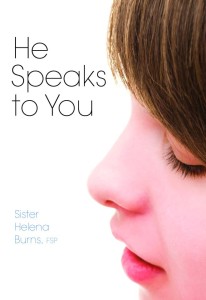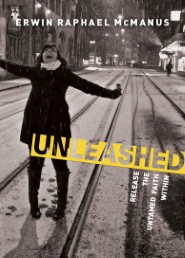Many Protestant churches teach it’s by faith alone that we’re saved. Many Protestants, in conversations that often turned into arguments, have reminded me that my church – the Catholic Church – doesn’t teach that.
They have said my church is wrong for that.
That I’m wrong for not believing it.
That I should leave my church.
Well I’ve been thinking, and there’s something I need to get off my chest.
The Protestant siblings in Christ who have most often reminded me that my church doesn’t say we are saved by faith alone are the same Protestants who have said they believe my faith in Jesus Christ is legit (i.e., “I know you’re a Christian, despite your church.”).
Well let’s suppose the truth – the whole truth, independent of human interpretation – turns out to be that we are, in fact, saved by faith alone. That my church actually is wrong. What happens when a Catholic has faith – when a Catholic’s faith is legit, despite his or her church?
If it’s by faith alone that we’re saved, and a Catholic really has faith, we can deduce the following:
1. He or she will be saved.
and
2. Neither good works, nor what the Catholic Church teaches about salvation, nor what a Catholic believes about salvation, can negate his or her salvation.
Not only can we deduce points 1 and 2, but if we believe we are saved by faith alone and we believe the Catholic in question has faith, we have to deduce points 1 and 2. Because if we believe we are saved by faith alone and we believe the Catholic in question has faith, we cannot disagree with points 1 and 2. Because if we disagree with points 1 and 2, we might not actually believe we are saved by faith alone.
It’s like this:
If we say we are saved by faith alone but believe a person’s salvation is negated by good works, what we’re really saying is this: Faith literally must stand alone in order to save us, that faith does its job if and only if nobody adds anything to it, including works. Which implies that the Christian life should be one of stagnation until death. We say we’re not only not saved by faith and works, but must avoid works, because they’ll negate our faith-alone salvation (which is contrary to what Christ teaches, and – for the record – is also contrary to what most of my Protestant friends who believe sola fide practice. I know they don’t believe that.).
And if we say we are saved by faith alone, but we believe a person’s salvation is negated if his church doesn’t teach salvation by faith alone, or that a person’s salvation is negated if she doesn’t believe in salvation by faith alone, what we’re really saying is this: We are saved “by faith and by being part of the right church,” or we are saved “by faith and by the belief that we’re saved by faith alone,” or we are saved “by faith and by being right.” We simultaneously say, then, that “it’s faith alone that saves us and it is not faith alone that saves us.” Which means in truth, we don’t believe we are saved by faith alone at all. We believe we’re saved by faith and something else.
I don’t say all this to try to prove you wrong. In fact, if you believe we are saved by faith alone, I’m not even saying you’re wrong.
I’m also not saying you’re right.
And I’m not saying I think right belief is unimportant. (I think it is!)
I’m not saying I don’t think it matters what our churches teach. (I think it does!)
I’m not saying I don’t share the blame for all the conversations that broke down into fights. (We’re all guilty!)
I am saying I think a person can believe it is by faith alone that we’re saved. But I’m also saying that if they believe that and they believe I have faith…
They don’t have to tell me I’m wrong anymore.
They don’t have to tell me my church is wrong anymore.
We don’t have to argue anymore.
There is no reason.
In my head, as I type this, I picture the Protestant v.Catholic fights of yore, in classrooms at the Protestant school where I studied from fifth through twelfth grade. All the times I was told I’m wrong. All the times I was told my church is wrong. All the times we argued. All bricks we added to the wall we’ve built between us. All the bones we broke in the Body. All the ignoring what we have in common. All the division.
I see the lady who told me my church is of the devil. I imagine her reading this post, and shaking her head, and crossing her arms, and saying, “Then maybe your faith isn’t real after all.”
And maybe you’re thinking that now, too.
But if we’re honest with each other, we can conclude that for every person on earth, there are only two people who can know for sure whether his or her faith is real:
The person him or herself, and Jesus Christ.
Some Christians – both the Protestants who believe salvation depends solely on faith and the Catholics who believe there is more to salvation than faith – are in the habit of deciding whether somebody else’s faith is real, anyway.
If we’re honest with ourselves, we know nobody gave me the authority to tell you if you’re saved.
If we’re honest, we know lots of people in both camps have faith and lots of people in both camps do good things and lots of people in both camps have faith and do good things. We can agree with Fr. Benedict Groeschel:
“Many people get involved in that useless old argument over faith and works,” he wrote. “I never met good Protestants who didn’t think they should obey God’s will, and I never met good Catholics who thought they would get to heaven just by doing good works, such as giving away turkeys at Thanksgiving.”
Preach, Fr. B. And I think he’d agree with this (and I hope you do, too):
We do each other a disservice when we act like our mission on earth is to tell other people that they’re wrong.
We do the world a disservice when in lieu of bringing Christ to it as best we can, and in lieu of being His hands and feet in it, we argue.
We do the Kingdom a disservice, when instead of using our time to cultivate our own faith, we use it to make judgments about that of others.



